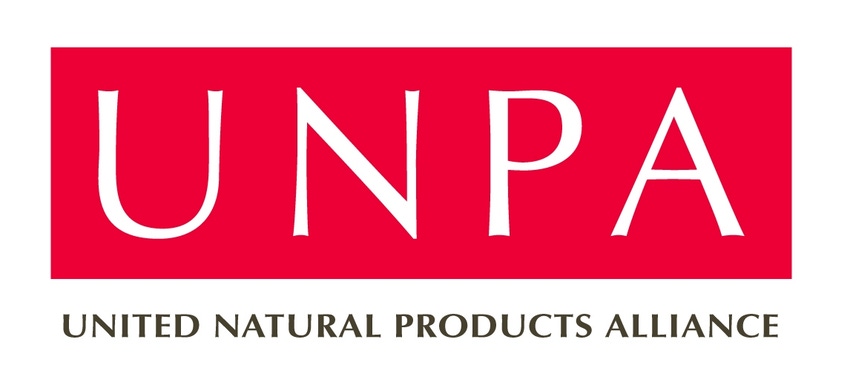Trade group calls for FDA funding and full DSHEA enforcement.
August 6, 2013

The United Natural Products Alliance (UNPA), an international alliance of forward-looking companies dedicated to providing consumers with natural health products of superior quality, benefit and reliability, expressed its opposition to S.1425, the Dietary Supplement Labeling Act, introduced in the U.S. Senate last week by Sens. Richard Durbin, D-Ill., and Richard Blumenthal, D-Conn.
UNPA notes that this legislation creates redundant regulatory burdens for both industry and the regulator, the Food and Drug Administration (FDA). Additionally, S.1425 does nothing to better equip FDA to enforce the provisions of the Dietary Supplement Health and Education Act (DSHEA) against known problem product categories, specifically those sold as dietary supplements for weight loss, erectile dysfunction or sports performance and sold primarily on the Internet.
“As UNPA has stated since the first introduction of this bill in 2011, we support the overall objectives of Sens. Durbin’s and Blumenthal’s legislation—to ensure the safety of lawfully sold dietary supplements and to remove from the market illegal products being sold as dietary supplements. Unfortunately, as drafted, S.1425 would not solve the problems it seeks to address. In fact, it would likely impede progress towards cracking down on unlawful actors by adding an unfunded set of mandates to an already underfunded FDA dietary supplement enforcement effort,” said UNPA President Loren Israelsen.
“Congress created DSHEA in 1994, which provides FDA with specific tools to regulate dietary supplements,” he added. “The answer is to not add additional paperwork and cost for both the agency and reputable dietary supplement companies, but for Congress to fully fund FDA to exercise the power it already has to speed up enforcement of key regulations, such as good manufacturing process (GMPs).”
A UNPA review of the proposed legislation found that it represents an unnecessary diversion from and a dilution of the agency’s already strained ability to implement components of the 20-year-old DSHEA—including guidance on new dietary ingredients (NDIs)—and enforcing current GMP and serious adverse event reporting (SAER) requirements.
UNPA noted that FDA’s GMP inspections have been successful in increasing compliance with DSHEA and are being utilized to confirm proper filing of SAERs and increasingly, to assess NDI compliance.
“We urge Congress to continue to support the full implementation of DSHEA, including proactive, industry-supported provisions covering GMPs and NDIs, as well as greater funding for specific FDA compliance programs,” Israelsen said.

You May Also Like


